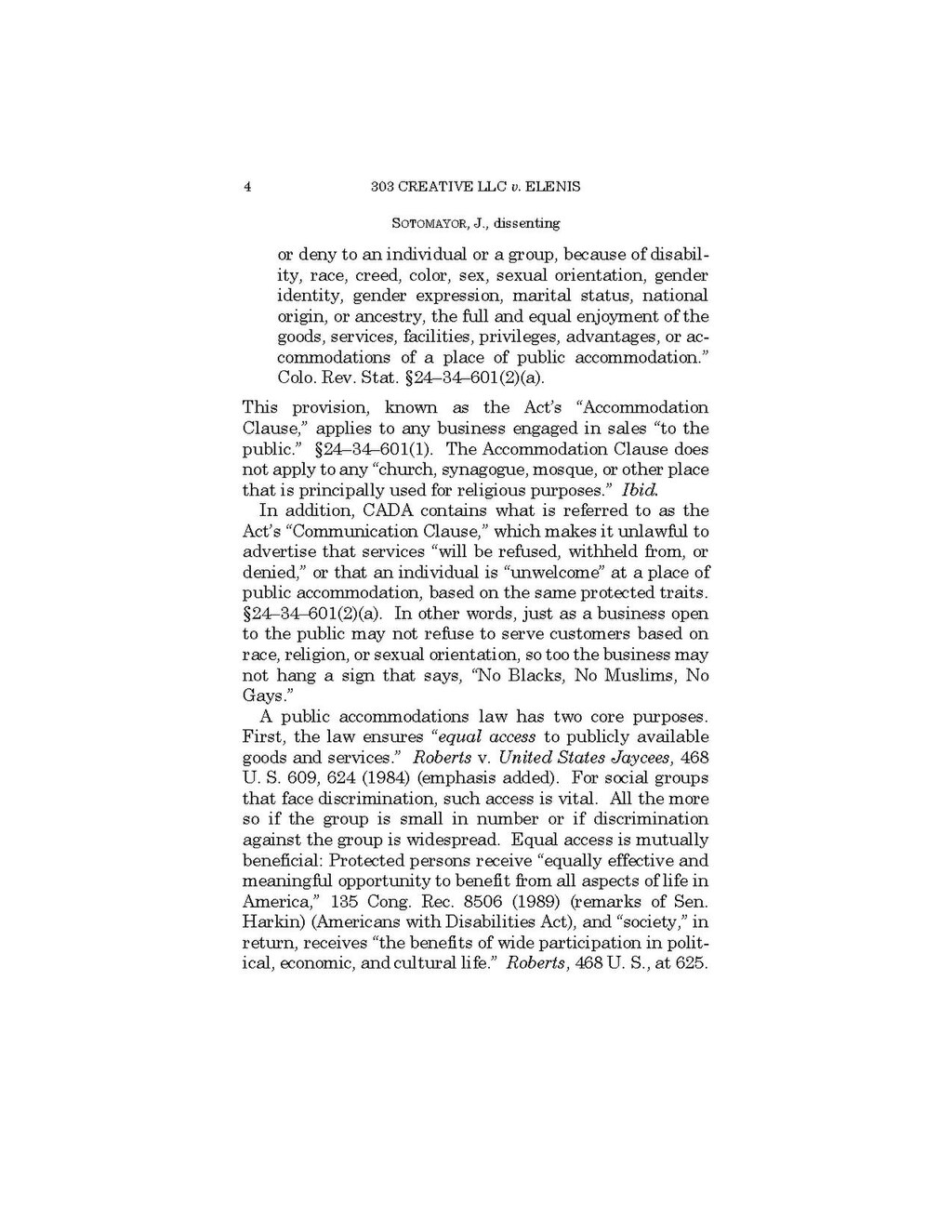Sotomayor, J., dissenting
or deny to an individual or a group, because of disability, race, creed, color, sex, sexual orientation, gender identity, gender expression, marital status, national origin, or ancestry, the full and equal enjoyment of the goods, services, facilities, privileges, advantages, or accommodations of a place of public accommodation.” Colo. Rev. Stat. §24–34–601(2)(a).
This provision, known as the Act’s “Accommodation Clause,” applies to any business engaged in sales “to the public.” §24–34–601(1). The Accommodation Clause does not apply to any “church, synagogue, mosque, or other place that is principally used for religious purposes.” Ibid.
In addition, CADA contains what is referred to as the Act’s “Communication Clause,” which makes it unlawful to advertise that services “will be refused, withheld from, or denied,” or that an individual is “unwelcome” at a place of public accommodation, based on the same protected traits. §24–34–601(2)(a). In other words, just as a business open to the public may not refuse to serve customers based on race, religion, or sexual orientation, so too the business may not hang a sign that says, “No Blacks, No Muslims, No Gays.”
A public accommodations law has two core purposes. First, the law ensures “equal access to publicly available goods and services.” Roberts v. United States Jaycees, 468 U. S. 609, 624 (1984) (emphasis added). For social groups that face discrimination, such access is vital. All the more so if the group is small in number or if discrimination against the group is widespread. Equal access is mutually beneficial: Protected persons receive “equally effective and meaningful opportunity to benefit from all aspects of life in America,” 135 Cong. Rec. 8506 (1989) (remarks of Sen. Harkin) (Americans with Disabilities Act), and “society,” in return, receives “the benefits of wide participation in political, economic, and cultural life.” Roberts, 468 U. S., at 625.
